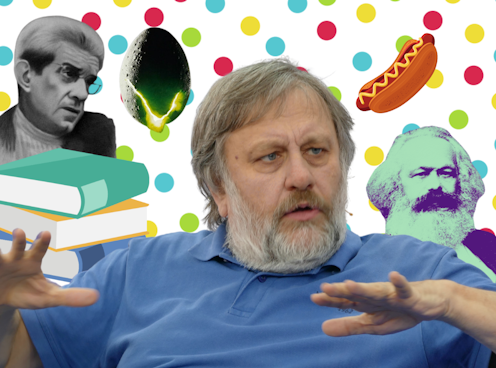Žižek: his key ideas explained
- Written by The Conversation

It might be said that books by Slavoj Žižek don’t conclude, they just end. And indeed, no matter which of his many books you open, you’ll find philosophy, psychoanalysis, pop culture, a smattering of off-key jokes, and commentary on recent events – often in no readily-discernible order.
Žižek, a Slovenian philosopher and cultural theorist, is known to many today for his 2019 debate with psychology professor and culture warrior Jordan Peterson. This debate, held in Toronto, Canada, was about the relationship between Marxism, capitalism, and happiness.
Žižek was presented as the Leftist counterpoint to Peterson’s reactionary stylings. While the two disagreed on much, they agreed on certain things, such as their criticism of identity politics. Yet this debate, too, arguably ended rather than came to any conclusions.
Žižek burst onto the anglophone academic scene over 30 years ago with a sequence of groundbreaking works, starting with the 1989 book, The Sublime Object of Ideology. Then there were wonderful explorations of Hollywood cinema in Enjoy your Symptom! and Looking Awry.
Once dubbed a “celebrity philosopher” by Foreign Policy, he has since written books on everything from violence, the GFC and September 11 to Christianity and the pandemic. His latest book explores the question of freedom.
Read more: Karl Marx: his philosophy explained
The critique of ideology
The title of Žižek’s 1989 book, The Sublime Object of Ideology, points towards a key aspect of his profuse intellectual productivity. From the start, Žižek has been interested in what motivates people to act the ways they do. He is especially interested in why people passionately identify with political ideas and causes that may not serve their own best interests.
Read more https://theconversation.com/zizek-his-key-ideas-explained-213247







